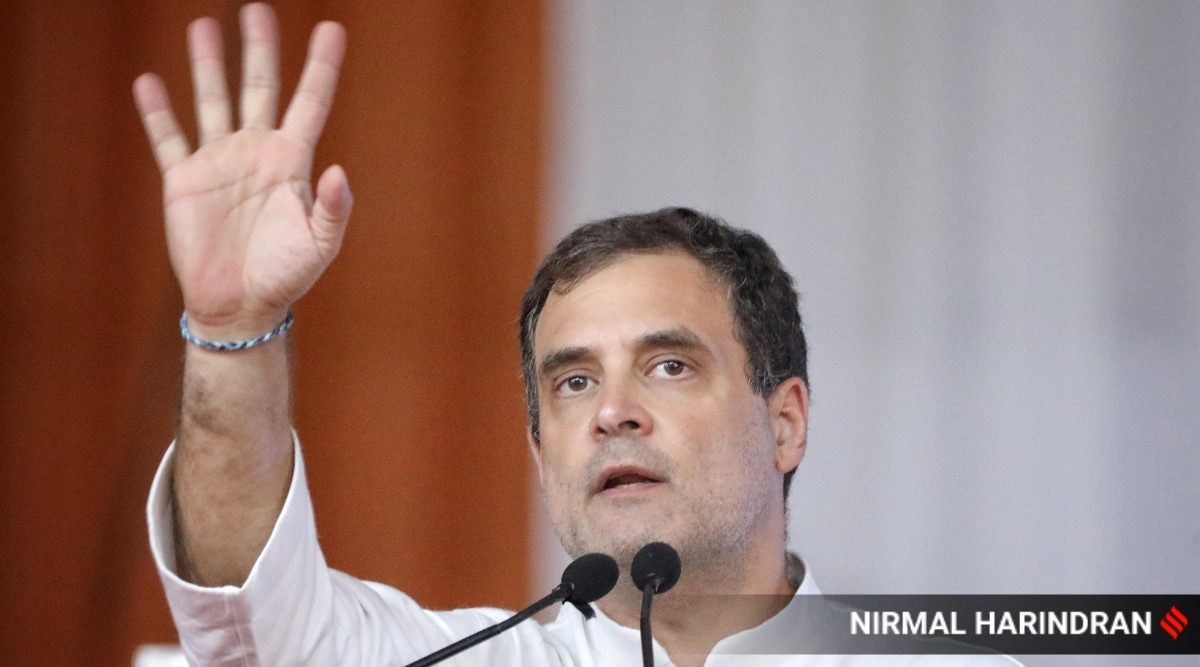 Senior Advocate Sajan Poovayya, appearing for Twitter, submitted that even though Rahul Gandhi's tweet has been geo-blocked in India, it is difficult to say that the content is not available outside of India. (Express file photo by Nirmal Harindran)
Senior Advocate Sajan Poovayya, appearing for Twitter, submitted that even though Rahul Gandhi's tweet has been geo-blocked in India, it is difficult to say that the content is not available outside of India. (Express file photo by Nirmal Harindran)The National Commission for Protection of Child Rights (NCPCR) told the Delhi High Court Friday that it will be “joining hands” with a public interest litigant’s plea seeking registration of an FIR against senior Congress leader Rahul Gandhi for tweeting a photograph of the parents of the nine-year-old Dalit girl who was allegedly raped and killed at a crematorium in southwest Delhi last August.
The child rights body, respondent no. 2, submitted before a division bench of Chief Justice Satish Chandra Sharma and Justice Subramonium Prasad that even though the tweet has been removed, the “offence still survives”.
Senior Advocate Sajan Poovayya, appearing for Twitter, submitted that even though the tweet has been geo-blocked in India, it is difficult to say that the content is not available outside of India. “If I file an affidavit saying that this content is not available in any other part of the world, (that) will be wrong because we don’t know…,” Poovayya said, adding that the platform gets 50 crore tweets on a regular basis, therefore it is impossible to say.
The counsel for the child rights body submitted that notice be issued to them, however, the court said that they will hear the body on the next date of hearing as the petitioner had engaged a new counsel in the matter. The court has listed the matter for consideration on December 7.
Twitter had earlier told the court that Gandhi’s account was temporarily suspended because of the tweet. The petitioner, social activist Makarand Suresh Mhadlekar, has argued that Gandhi violated Section 74 of the Juvenile Justice Act, 2015 and Section 23(2) of the POCSO Act, “both of which mandate that the identity of a child victim of a crime shall not be disclosed”. The petitioner has also sought the high court to direct NCPCR to take appropriate legal action against Gandhi.
“The law in this regard is very well-settled in a catena of judgments including in the case of Nipun Saxena v Union of India wherein it was held by the Hon’ble Supreme Court of India, that the name, address, school or other particulars which may lead to the identification of the child in conflict with law/victim cannot be disclosed to the media. No picture of such a child, or any such particular which can directly or indirectly disclose her identity, can be published. A child who is not in conflict with the law but is a victim of an offence especially a sexual offence needs this protection even more,” contends the plea.